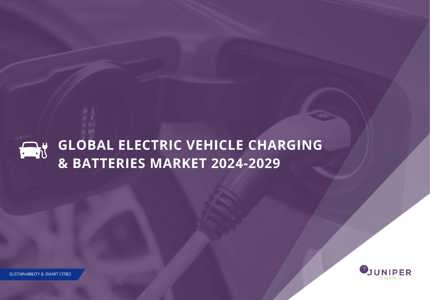UK Election Results: What Do They Mean for Sustainability & Green Energy?
Labour's election victory comes at a pivotal time for the global sustainability sector. A newfound urgency about the climate crisis, as well as rising energy costs, means that governments, businesses, and individual are looking to reduce their emissions output and move towards a 'net zero' society.
This new government, then, is under pressure to place sustainability and clean energy at the heart of its policymaking; not just when launching green initiatives, but in everything it aims to achieve.
The Labour Party identified several key pledges surrounding clean energy and sustainability within its manifesto. These included the following:
- Working with the private sector to double onshore wind, triple solar power, and quadruple offshore wind by 2030, as well as investing in carbon capture and storage, hydrogen and marine energy, and long-term energy storage
- Ensuring that new policymaking reflects commitments to reach net zero and carbon budgets
- Supporting the introduction of a carbon border adjustment mechanism
- Phase out ICE vehicles by 2030, restoring an abandoned pledge by the previous government
These pledges contain a lot of potential improvements to how the UK tackles sustainability and the larger climate crisis. However, these are big commitments, and a lot will need to happen to achieve them.
To this end, we've identified several recommendations that the new government could integrate into its new strategy.
Improving EV Charging Infrastructure
At present, there is a lack of electric vehicle charging infrastructure to support the increasing number of electric vehicles. In addition, the current charging network is highly fragmented, hindering EV adoption amongst consumers.
In order to avoid this confusion, the government must improve efforts to standardise elements such as charging connectors, and standardising access to chargers via contactless payments or aggregated apps. Reducing the level of fragmentation throughout the EV charging landscape will improve the charging infrastructure and therefore encourage EV adoption; reducing the need for ICE vehicles.
Supporting Renewable Energy Technologies
At present, the UK is off track in regards to meeting net zero, therefore it is vital for the Labour government to begin acting on this as soon as possible. One of the best ways to achieve this is through the use of renewable energy technologies, such as wind and solar power. The Labour government is taking steps to increase windfarm construction by announcing that it is lifting the de facto ban that is currently in place. This is a step in the right direction for increasing renewable energy technology, however, there are still a number of hurdles that it will need to overcome, such as removing the number of planning obstacles involved in new projects, and ensuring that the grid is set up to receive new supplies.
One action that could be taken by the new government in improving energy sources is increasing the requirement for carbon emission reduction in houses. At present, it is only stated that energy-saving measures need to be included in new builds, however, some houses are still being built with gas boilers and without solar panels. Alongside this, retrofitting older houses with improved insulation would also significantly decrease energy use; reducing pressure on the grid.
Encouraging MaaS to Reduce the Public's Reliance on Private Vehicles
At present, there are major infrastructure and public transport issues holding MaaS (Mobility-as-a-Service) back from its full potential especially in rural areas. In the UK, this is a mixture between having fragmentation of public transport networks that can be connected combined with limited regulations in place which will be beneficial for MaaS. Overregulation can hinder development and slow the market, while under-regulation can limit the wider adoption of new concepts and technologies, therefore, it is important for the government to get the correct level of regulation.
Critically, the new UK government must consider the optimal way of improving the current sustainability efforts through investment into renewable energy technologies and electric vehicle infrastructure, in order to support future regulations and initiatives. Given there needs to be reductions in the production of fossil fuel-based energy to reach net zero, the new government must act now, given the slow rate of progress in the energy market.
Latest research, whitepapers & press releases
-
 ReportJanuary 2026IoT & Emerging Technology
ReportJanuary 2026IoT & Emerging TechnologyPost-quantum Cryptography Market: 2026-2035
Juniper Research’s Post-quantum Cryptography (PQC) research suite provides a comprehensive and insightful analysis of this market; enabling stakeholders, including PQC-enabled platform providers, specialists, cybersecurity consultancies, and many others, to understand future growth, key trends, and the competitive environment.
VIEW -
 ReportJanuary 2026Telecoms & Connectivity
ReportJanuary 2026Telecoms & ConnectivityMVNO in a Box Market: 2026-2030
Juniper Research’s MVNO in a Box research suite provides Mobile Virtual Network Enablers, Mobile Virtual Network Aggregators, and other players with detailed analysis and strategic recommendations for monetising demand for MVNO in a Box services.
VIEW -
 ReportDecember 2025
ReportDecember 2025AI Agents for Customer Experience Platforms Market: 2025-2030
Our comprehensive AI Agents for Customer Experience Platforms research suite comprises detailed assessment of a market that is set to disrupt mobile communications. It provides stakeholders with insight into the key opportunities within the AI agents for customer experience platforms market over the next two years.
VIEW -
 ReportDecember 2025Fintech & Payments
ReportDecember 2025Fintech & PaymentseCommerce Fraud Prevention Market: 2025-2030
Our eCommerce Fraud Prevention research suite provides a detailed and insightful analysis of this evolving market; enabling stakeholders from financial institutions, law enforcement agencies, regulatory bodies and technology vendors to understand future growth, key trends, and the competitive environment.
VIEW -
 ReportNovember 2025Telecoms & Connectivity
ReportNovember 2025Telecoms & ConnectivityeSIMs & iSIMs Market: 2025-2030
Juniper Research’s eSIMs and iSIMs research suite offers insightful analysis of a market set to experience significant growth in the next five years. The research suite provides mobile network operators (MNOs), original equipment manufacturers (OEMs), and eSIM management and platforms vendors with intelligence on how to capitalise on the market growth, and guidance on how eSIM-only devices and sensors, SGP.42, in-factory provisioning, and iSIMs will change the competitive landscape.
VIEW -
 ReportNovember 2025Fintech & Payments
ReportNovember 2025Fintech & PaymentsModern Card Issuing Platforms Market: 2025-2030
Our Modern Card Issuing Platforms Market research suite provides a detailed and insightful analysis of this evolving market; enabling stakeholders from banks, financial institutions, fintech companies, and technology vendors to understand future growth, key trends, and the competitive environment.
VIEW
-
 WhitepaperJanuary 2026IoT & Emerging Technology
WhitepaperJanuary 2026IoT & Emerging TechnologyPreparing for Q-Day: Post-quantum Security Shift
Our complimentary whitepaper, Preparing for Q-Day: Post-quantum Security Shift, assesses the factors which are increasing interest in adopting PQC, and challenges to PQC adoption. Additionally, it includes a forecast summary of the global spend on PQC by 2035.
VIEW -
 WhitepaperJanuary 2026Telecoms & Connectivity
WhitepaperJanuary 2026Telecoms & ConnectivityHow Fintechs and Retail Companies Are Changing Mobile Services
Our complimentary whitepaper, How Fintechs and Retail Companies Are Changing Mobile Services, explores the key enterprises entering the MVNO market and launching mobile services via MVNO in a Box partners. It also provides forecasts for total MVNO revenue from mobile subscribers in 2030.
VIEW -
 WhitepaperJanuary 2026IoT & Emerging Technology
WhitepaperJanuary 2026IoT & Emerging TechnologyTop 10 Emerging Tech Trends 2026
See which emerging technologies will shape enterprise strategy and investment in 2026; from post-quantum cryptography to neuromorphic computing and next-generation infrastructure.
VIEW -
 WhitepaperDecember 2025Telecoms & Connectivity
WhitepaperDecember 2025Telecoms & ConnectivityHuman + AI: Drivers of Customer Experience AI Agents in 2026
Our complimentary whitepaper, Human + AI: Drivers of Customer Experience AI Agents in 2026, examines the key drivers of the AI agents for customer experience platforms market in 2025.
VIEW -
 WhitepaperDecember 2025Fintech & Payments
WhitepaperDecember 2025Fintech & PaymentsBeyond Chargebacks: The True Cost of Fraud for Digital Commerce
Our complimentary whitepaper, Beyond Chargebacks: The True Cost of Fraud for Digital Commerce, examines the state of the eCommerce fraud prevention market; considering the impact of evolving digital fraud strategies, including key trends such as identity theft, account takeovers, chargebacks, policy abuse and friendly fraud.
VIEW -
 WhitepaperNovember 2025Telecoms & Connectivity
WhitepaperNovember 2025Telecoms & ConnectivityeSIM-only Devices: The Impact on Operators, Consumers, and IoT
Our complimentary whitepaper, eSIM-only Devices: The Impact on Operators, Consumers, and IoT, explores the challenges and opportunities for the three segments, with a particular focus on eSIM-only smartphones and SGP.42.
VIEW
-
Fintech & Payments
Modern Card Issuing Platforms to Issue 1.6 Billion Payment Cards in 2030, as Banks Shift Focus From UX to Cost Efficiency
January 2026 -
IoT & Emerging Technology
Post-quantum Cryptography Market to Exceed $13 Billion by 2035 as Q-Day Awareness Accelerates
January 2026 -
Fintech & Payments
Digital Wallets: QR Codes to Constitute Half of All Wallet Transactions Globally Over Next Five Years
January 2026 -
Telecoms & Connectivity
MVNO in a Box Platforms to Drive MVNO Market to 438 Million Subscribers Globally by 2030
January 2026 -
IoT & Emerging Technology
Juniper Research Unveils Top 10 Emerging Tech Trends to Watch in 2026
January 2026 -
Fintech & Payments
Digital Identity App Usage to Hit 6.2 Billion by 2030, Driven by Shift to Decentralised Models
December 2025






















